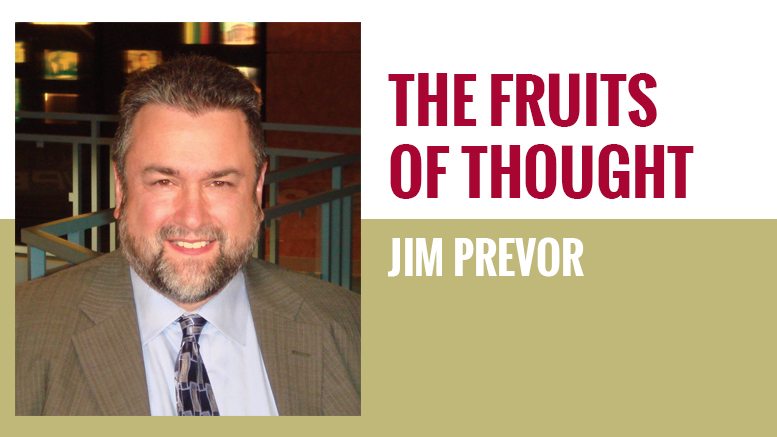Time For Industry Leaders To Engage In Debate On Immigration And Labor
July 17, 2019 | 4 min to read
The produce industry has struggled to influence public policy regarding immigration and labor, notably in advocating for a guest-worker program under both Democrat and Republican administrations for years. President Trump employs a broad negotiating strategy, threatening tariffs to pressure Mexico on immigration. The Fresh Produce Association of the Americas cautions that these tariffs could impose $3 billion in costs on American consumers. To succeed, industry advocates must better align their efforts with consumer and immigration issues.

 The produce industry has many articulate and knowledgeable advocates. Yet, it does not seem we are particularly effective in advancing our public policy objectives.
The produce industry has many articulate and knowledgeable advocates. Yet, it does not seem we are particularly effective in advancing our public policy objectives.
Think about how many years the industry has been advocating a guest-worker program without effect – this is true under both Democrat and Republican administrations – and it goes back long before President Trump was in office. But in today’s political climate, there is much more nuance to the debate on immigration and labor, and we have to understand how to control the narrative.
President Trump’s negotiating philosophy holds a particular challenge to special interest groups. Namely, he is simply unwilling to confine disputes. In fact, he seeks negotiating leverage by broadening the field of dispute. This is the kind of three-dimensional chess game that opponents would rather not play … and the “game” is being extended into our trade with Mexico and our problems with immigration and cheap labor.
In a recent article by Arjun Reddy of Business Insider — “Trump is deploying a tactic from ‘The Art of the Deal’ ” — we are reminded of Trump’s philosophy on negotiation:
“The best thing you can do is deal from strength, and leverage is the biggest
strength you can have. Leverage is having something the other guy wants. Or better yet, needs. Or best of all, simply can’t do without,” Trump wrote. … Trump delivered the news in the form of a tweet, saying tariffs would be in place “until such time as illegal migrants coming through Mexico, and into our Country, STOP.” The migrants have typically been people fleeing violence in Central America, with these migrants passing through Mexico to reach the US.
Now the Fresh Produce Association of the Americas (FPAA) released a statement in response to President Trump’s tweet about his plans to impose these tariffs. In that statement, it was mentioned that “Americans will be paying an extra $3 billion for avocados, tomatoes, mangos and other fruits and vegetables if 25% tariffs on Mexican imports into the U.S. take effect in October. … Not only are these punitive tariffs and duties a tax on American consumers, they must first be paid by American companies.”
It is a perfectly sound statement, emphasizing the cost to American consumers of tariffs. Perhaps it will rouse some congressional opposition. We don’t think it likely though. President Trump didn’t say that this plan will reduce costs for American consumers or encourage healthy diets; he said it will put pressure on the Mexican government to fulfill their responsibility of not allowing their country to be an illegal transit point for Central Americans to enter the US.
Will it work? Maybe. But the point is that the produce industry is not really responding to the interests that are pushing the policies it does not like. If your main concern is illegal immigration across the Mexican border, then you will hope President Trump’s stance works, and then, after Mexico steps up and controls the immigrants coming from Central America, the tariffs will be dropped.
Similar thoughts came to mind when we read Kevin Murphy’s op-ed piece in The Wall Street Journal, “American Farmers Need Immigration Reform.” Kevin was the CEO of Driscoll’s and is an immigrant from South Africa, so he is well positioned to make this case. His plan is simple:
First, ensure a viable guest-worker program for the effective inflow of farm- workers. They’re often called low-skilled, but many are highly skilled for specific and essential jobs.
Second, workers who are otherwise in good legal standing should have the opportunity to earn legal status. That would provide safety for them, and much-needed stability for their employers.
Third, pass laws that enable a system of legal workers and secure borders. This will ensure we’re not back at this same place 30 years from now.
None of this is new, though, and it is hard to see why it will suddenly be persuasive. Though few in the industry see an upside in publicly challenging big growers, we often hear contrary opinions coming from retailers and other buyers. As far back as 2006, one of the most important buyers in the industry conveyed his thoughts, which we published in PerishablePundit.com:
… we haven’t attributed the correct cost to our cheap labor. Thirty percent of California prison inmates are in the country illegally. There are 20 murders per year in Salinas, a city of 150,000 people. The city spends almost $1 million on a gang task force every year. These are social costs that are borne by all the citizens of the city and state, and aren’t accounted for in the cost of the produce.
Kevin’s fine piece was focused on what farmers need, and the FPAA press release was focused on consumer prosperity, but the advocates of the policies in question, particularly those policies espoused by President Trump, are focused on different issues. To prevail, the industry has to engage.
14 of 17 article in Produce Business July 2019

